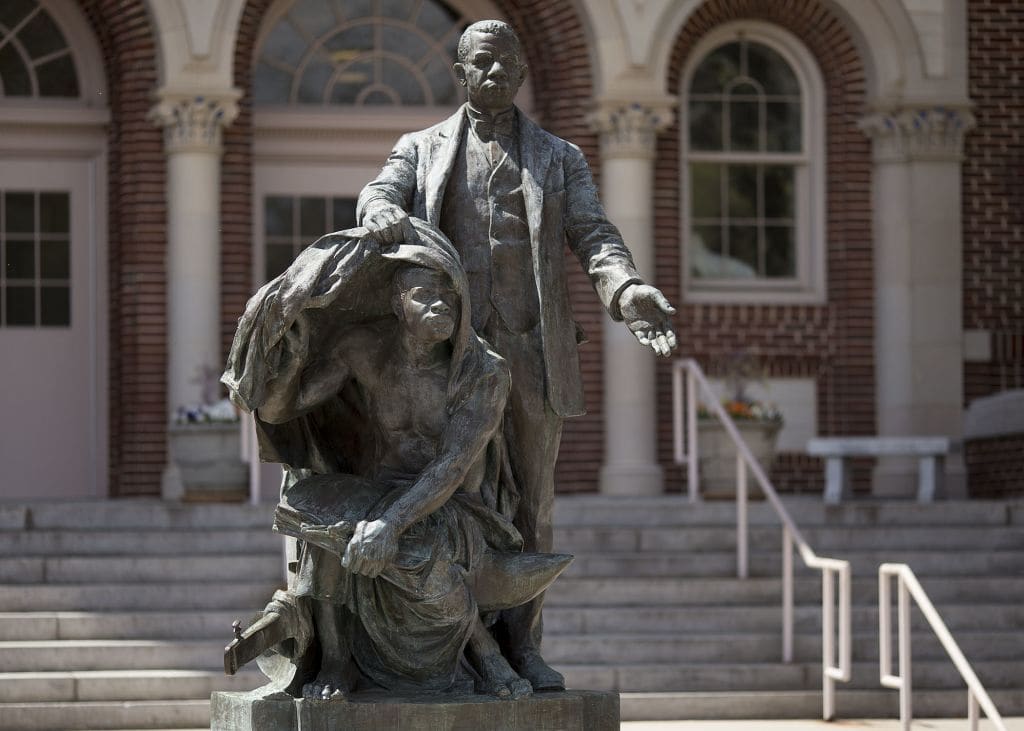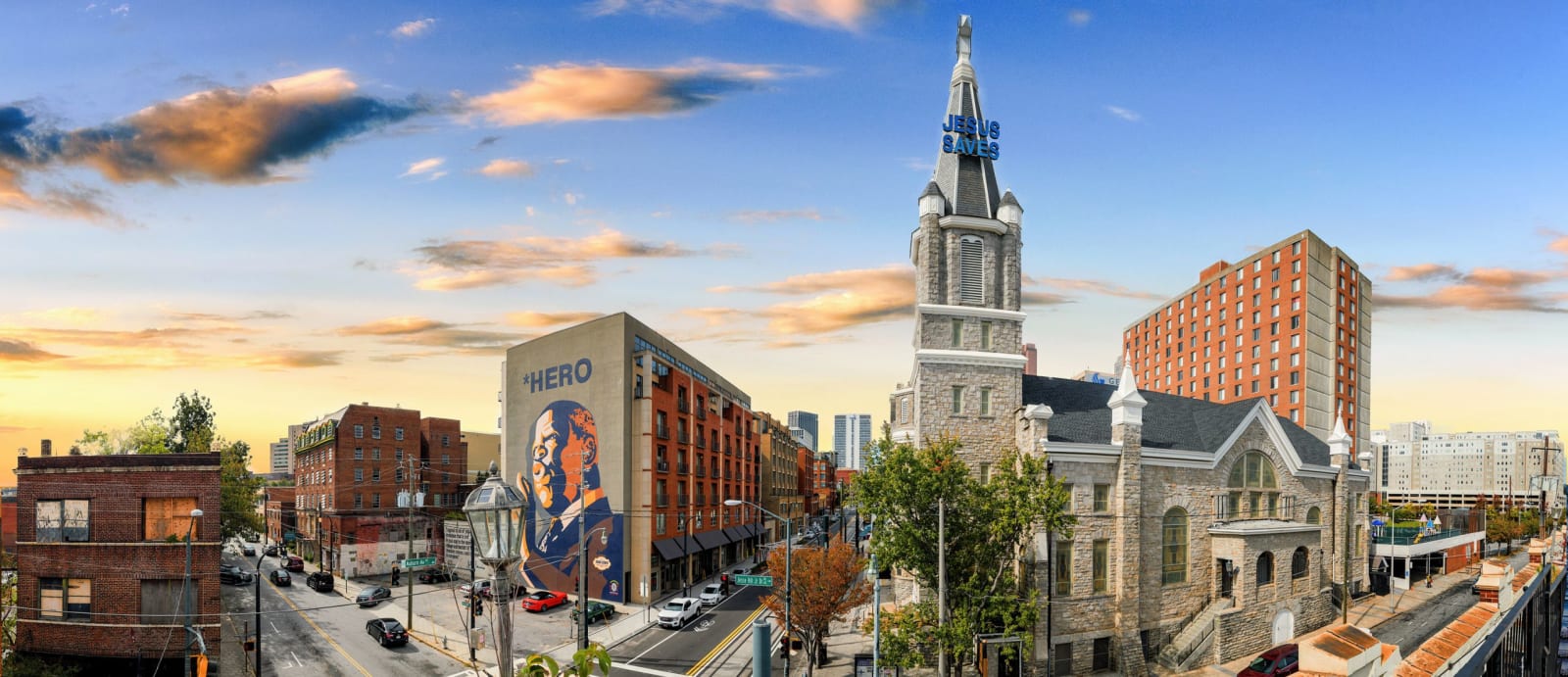Unsung Heroes of Atlanta: Celebrating Black History’s Local Legends
Published January 23, 2025
Last Updated February 18, 2025
Certainly, Atlanta produced giants of the Civil Rights Movement. Names such as Martin Luther King Jr., Coretta Scott King, Andrew Young, Hosea Williams, John Lewis, Ralph Abernathy, Joseph Lowery, Roslyn Pope and so many more are well-known. They, of course, did not succeed on their own. Meet some important Atlantans whose impact was equally significant and who paved the way for the well-known leaders who followed.

The Atlanta 9, School Integration

On Aug. 30, 1961, nine Black students, The Atlanta 9, integrated Atlanta Public Schools.
— Rosalyn Walton was a high school junior at Howard High School in the heart of the historic Old Fourth Ward neighborhood. She was chosen to attend Murphy High School in Decatur as was Martha Ann Holmes. Murphy High School was renamed Alonzo A. Crim Open Campus High School in 1988 for the first Black superintendent of Atlanta Public Schools. The school closed in 2020.
— Thomas Welch and Madelyn Nix enrolled at Brown High School, which was renamed Herman J. Russell West End Academy in 2021. Russell was a prominent Atlanta businessman, owner of H.J. Russell and Co., one of the nation’s most profitable minority-owned businesses.
— Willie Jean Black, Arthur Simmons and Donita Gaines integrated Northside High School.
— Mary McMullen and Lawrence Jefferson were the first black students at Grady High School, now Midtown High School.
Sources: Georgia State University Digital Collection, Booker T. Washington High School Oral History Project, Atlanta Journal Constitution, Georgia State University Library, Atlanta History Center, New Georgia Encyclopedia.
Clarence Bacote, Voter Education
Known for educating black voters in Atlanta, Clarence Bacote assisted in registering thousands of Black voters in the 1940s. He also is credited with organizing those voters into a political force in Atlanta. He became the first director of citizenship schools created by the Atlanta branch of the NAACP. The purpose was to better acquaint Blacks with government operations. He became chairman of the Atlanta All-Citizens Registration Committee, which increased registration from 6,976 to 21,244 in fewer than five months. Bacote remained chairman of the Atlanta Negro Voters League until 1953.
Source: New Georgia Encyclopedia
Alice Dugged Cary, Early Childhood Education
Alice Dugged Cary established the first free kindergartens for African American children in Atlanta, Macon and Charleston, S.C. She was principal of Mitchell Street School (later demolished) concurrently with her position as second principal of Morris Brown College. She was Georgia State chairman of the Colored Woman’s Committee and president of the Georgia State Federation of Coloured Women.
Source: Back Then, Discovering Our History
Myra Payne Elliott, Iris Mae Welch, Barbara Pace Hunt, Higher Public Education
Myra Payne Elliott, Iris Mae Welch and Barbara Pace Hunt were denied admission to the Georgia State College of Business Administration because of their race. They sued the state of Georgia and the Board of Regents on the grounds of discrimination and denial of equal protection. The resulting court case became significant in the dismantling of discrimination in public higher education in Georgia.
Source: Georgia Senate Resolution 728
Barbara Harper, School Integration
Barbara Harper participated in the Booker T. Washington Oral History Project, where she explained to students the process she went through as Atlanta Public Schools began to integrate. While she ended up remaining in her Black high school, because only nine students, the Atlanta 9, were selected to be the first to integrate, she explains that she and her classmates who were chosen as possible pioneers had to take a test to determine if they were “intelligent enough” to attend the white schools. “Of course, the test was easy,” she said.
Source: Booker T. Washington High School Oral History Project
Lugenia Burns Hope, Neighborhoods
A native of St. Louis, Mo., Lugenia Burns Hope came to Atlanta with her husband, John Hope, who taught at Atlanta Baptist College (later Morehouse College). He became the school’s president in 1906. Lugenia Burns Hope became active in the Neighborhood Union, which set out to address decay in Atlanta’s Black neighborhoods. She became president of the organization and is credited for laying the groundwork of the Civil Rights Movement. In 1932 she became the first vice president of the Atlanta chapter of the NAACP. In 1996 she was inducted into Georgia Women of Achievement. John and Lugenia Hope’s papers are housed in the Robert W. Woodruff Library at Atlanta University Center.
Source: Georgia Encyclopedia
David T. Howard, Banker
David T. Howard, once a slave, became a business owner and founder of Atlanta’s first Black-owned bank. He was a philanthropist and supporter of education. One of his charitable donations was the land that became the location for an elementary school that was named for him. Martin Luther King Jr. attended the school from 1936 until 1940. The elementary school became a high school in 1948 and closed in 1976. The building sat empty for four decades. In 2016, Atlanta Public Schools announced that the abandoned school would be revived and renovated to become Inman Middle School. In 2020, the name was changed to the David T. Howard Middle School.
Source: David T. Howard Middle School
Carrie Steele Logan, Orphans
Born enslaved in 1829, Carrie Steele Logan founded the Carrie Steele Orphan Home in Atlanta, recognized as the oldest predominantly Black orphanage in Georgia and possibly the oldest organization of its type in the country. She worked in Macon for 16 years then for the Central of Georgia Railway at Atlanta’s Union Station for 20 years. She began caring for homeless African American children and ultimately chartered the orphanage. Today, the Carrie Steele-Pitts Home is located in Decatur, Ga. Buried at Oakland Cemetery, she was inducted into Georgia Women of Achievement in 1988.
Source: New Georgia Encyclopedia
Wesley Chapel Redding, Entrepreneur

Wesley Chapel Redding, born a slave, attended Atlanta University, which ultimately merged with Clark College to become Clark Atlanta University. He became the Black teller for Black patrons of Merchants Bank. In 1861, he helped establish the Atlanta Loan and Trust Company, the first Black financial institution on Auburn Avenue. He also opened the European Hotel on Auburn Avenue and served as manager.
Source: bryanowensart.com
Ruby Doris Smith-Robinson, Student Nonviolent Coordinating Committee
Ruby Doris Smith-Robinson grew up in Atlanta’s Summerhill neighborhood. She attended Spelman College. While there, joined the Atlanta Student Movement and the Student Nonviolent Coordinating Committee (SNCC). In 1966 she replaced James Forman at SNCC executive secretary.
Source: Kennesaw State University
Sarah Howard Stephens, Atlanta Student Movement
Known for being active in the Atlanta Student Movement, Sarah Howard Stephens was born at Atlanta’s Grady Hospital and studied at Savannah State University and Woodrow Wilson Law School. She became the first Black female hired by the General Services Administration Atlanta Region. President Lyndon Johnson established the United States Federal Information Center (FIC) in 1967. The General Services Administration (GSA) was requested to help staff the new agency. Sarah Stephens was selected to represent the GSA. Eventually she was hired by the FIC and later became the manager. Along the way, she faced discrimination, but she held her head up and set an example with her competence.
Source: Kennesaw State University
James Tate, Business
James Tate is regarded as the father of Black business in Atlanta. Born a slave with his white “owner” also his father, Tate was educated in secret by his father. When he arrived in Atlanta in the 1860s, he opened two grocery stores on Decatur and Walton streets Downtown. He organized Atlanta’s first school for African Americans and was one of the founders of Friendship Baptist Church, birthplace of Spelman College. Becoming one of Atlanta’s wealthiest Black Americans in the 1870s, he provided business loans to people who couldn’t otherwise get a loan. In 1866, he established the Equal Rights Association, and in 1870 he ran for the Georgia General Assembly. In 1870 he delivered the Black vote from Atlanta’s third and fourth wards to the Republican Party. He organized African American Ward clubs in 1870 and died in 1897.
Source: bryanowensart.com
To read more about civil rights in Atlanta, see our Civil Rights Itinerary or explore Atlanta’s Civil Rights Legacy. For a complete experience, visit Atlanta’s National Center for Civil and Human Rights. It is closed for renovations until early fall 2025.
Discover More
Get to know Atlanta, and discover the best things to do around the city.
